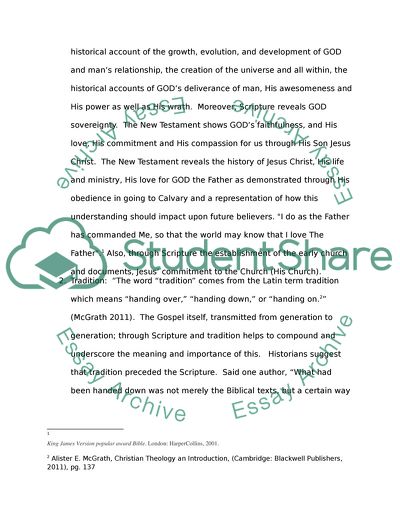Cite this document
(Systematic Theology Essay Example | Topics and Well Written Essays - 3250 words, n.d.)
Systematic Theology Essay Example | Topics and Well Written Essays - 3250 words. https://studentshare.org/religion-and-theology/1806118-who-i-am-what-i-will-become-begins-with-what-i-believe
Systematic Theology Essay Example | Topics and Well Written Essays - 3250 words. https://studentshare.org/religion-and-theology/1806118-who-i-am-what-i-will-become-begins-with-what-i-believe
(Systematic Theology Essay Example | Topics and Well Written Essays - 3250 Words)
Systematic Theology Essay Example | Topics and Well Written Essays - 3250 Words. https://studentshare.org/religion-and-theology/1806118-who-i-am-what-i-will-become-begins-with-what-i-believe.
Systematic Theology Essay Example | Topics and Well Written Essays - 3250 Words. https://studentshare.org/religion-and-theology/1806118-who-i-am-what-i-will-become-begins-with-what-i-believe.
“Systematic Theology Essay Example | Topics and Well Written Essays - 3250 Words”. https://studentshare.org/religion-and-theology/1806118-who-i-am-what-i-will-become-begins-with-what-i-believe.


